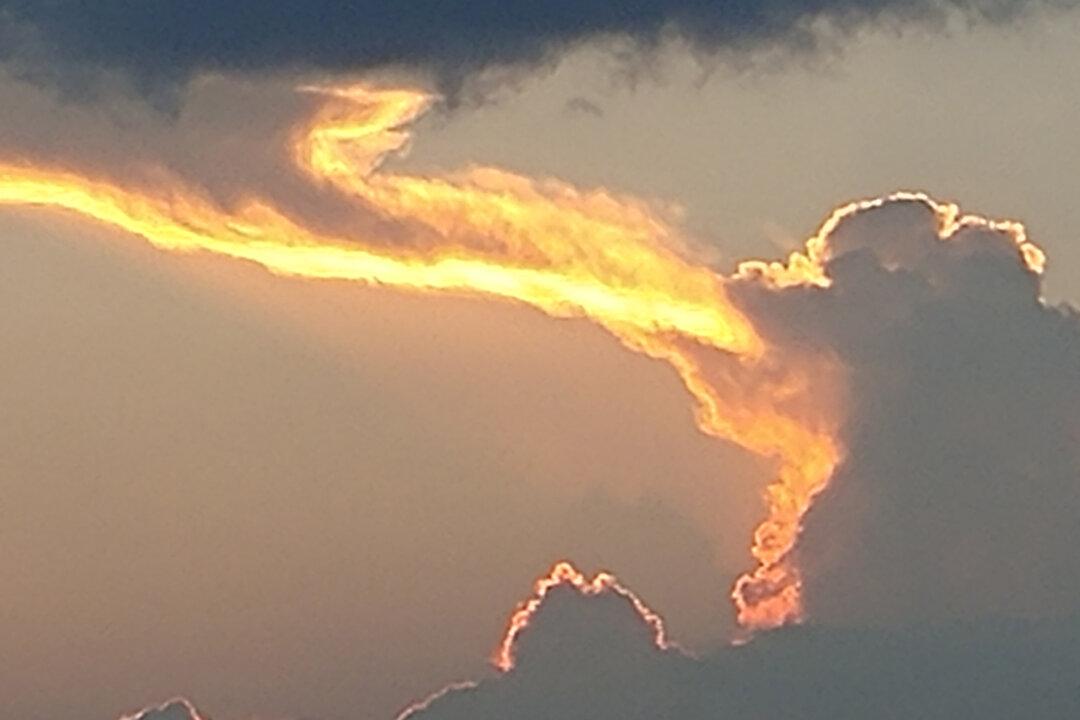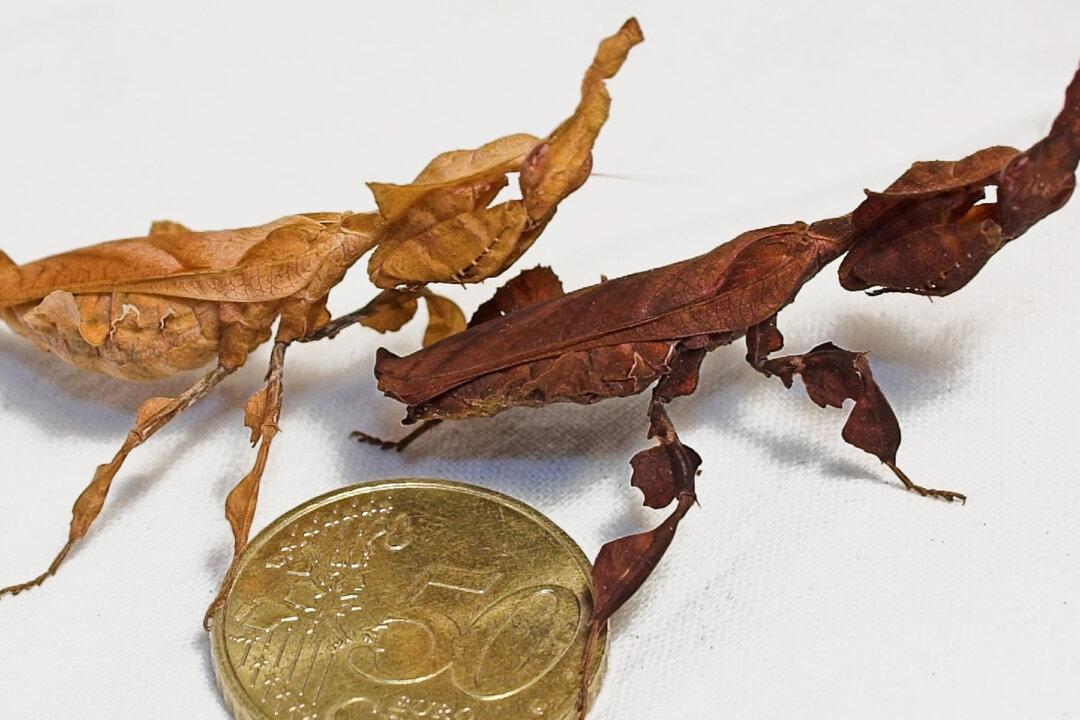A photographer from Lake Travis, Texas, happened to be in the right place at the right time for capturing a photo of an unmistakable mythical creature: a fire dragon-shaped cloud of smoke.
Joe Moxley, who lives in the town of Lago Vista on the lake’s north shore, managed to spot the telltale wisp of smoke that looked like a dragon’s fiery breath. The last of the daylight added an extra dimension by highlighting the cloud with yellowish flame.





